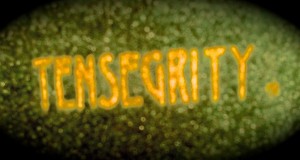
– Photo by Chuck Ketchel
In 1916, the period that came to be known as Jung’s Confrontation with the Unconscious, as recorded in his now publicly available Red Book, Jung’s household and family were seized by a haunting. As he relates in his autobiography, Memories, Dreams, Reflections:
“There was an ominous atmosphere all around me. I had the strange feeling that the air was filled with ghostly entities… My eldest daughter saw a white figure passing through her room. My second daughter, independently of her elder sister, related that twice in the night her blanket had been snatched away… (T)he front doorbell began ringing frantically. It was a bright summer day; the two maids were in the kitchen, from which the open square outside the front door could be seen. Everyone immediately looked to see who was there, but there was no one in sight. I was sitting near the doorbell, and not only heard it but saw it moving. Then I knew that something had to happen.” (From pp 190-191.)
What ultimately did happen was Jung’s interaction with a group of ancient spirits. Once he engaged in the dialogue the hauntings stopped. These dialogues were documented in the Red Book, and prompted Jung to embark on his lifetime career of mapping the deeper structure and dynamics of the psyche.
Among his major discoveries was the principle of synchronicity. As evidenced from his personal haunting, spiritual forces from within the psyche can effect physical reality. In Jung’s case, he had not been paying attention to the deeper layers of what he came to call the collective unconscious and so the collective unconscious came to encounter him in a physical haunting. Physical events in one’s personal life may represent the true energetic picture of reality at a moment in time. This is the synchronistic value of an oracle like the I Ching as well, who’s reading is built by the image generated through the physical throwing of coins.
In Vedantic science we are beings comprised of five layers. Our outermost sheath is our physical body within which lies a series of energy bodies, housing our emotional, mental, wisdom, and blissful selves. Beneath all the sheaths lies the Atman, the Buddha, or simply God, beyond all the many Masks of God, as Joseph Campbell would say. We become enlightened when we fully realize—become—our deepest nature, shedding our attachment to all our sheaths.
In the meantime, we are complex beings who synchronistically interact with our deeper spirit in a myriad of ways. We are constantly being pushed by our spirit to discover and become who we really are. Life events can be viewed as our conscious or unconscious relationship with our knocks from spirit. This happens individually in the events of our lives and collectively in the events of our time. We are now in a time of great knocks from spirit, asking us to awaken to our truths and make great changes in how we care for ourselves and our planet.
I share today a most personal story, as spirit has drawn the events in my family into a public forum. I must answer this call, this request from spirit for transparency. We are all requested now to become, as Joseph Campbell put it, transparent to the transcendent. In this manner, we release our attachment to the self-centered demands of our individual sheaths and open to the energy and truths of our deepest spiritual selves in new balance. And so, here is how spirit, the impersonal, came to interact with the personal in the recent life of my family.
It was a Friday afternoon, around 3 PM. I decided to mow the lawn. A tire was flat on the mower. I turned on the small air compressor to fill it when suddenly the motor died and sparks started shooting out of it. It was finished.
I gathered Jan to drive to Kingston with me to purchase a new compressor. We took our time studying what was available at Lowe’s and finally made our selection. As we approached the tollbooth to the Kingston bridge on our return journey, something compelled me to notice a black Mercedes in front of me. I noted the word Kompressor above the back bumper. I said nothing.
After crossing the bridge, we drove a ways and came to a light. Jan’s attention was drawn to the same black Mercedes. “Look,” she said, “Kompressor! Funny that we see that just after we’ve bought a new compressor. I wonder what it means.”
After returning home, I mowed the lawn and in the early evening the phone rang. It was my younger son, a Georgia resident, who informed me that he was in town for a surprise visit. He was ten minutes from the house and would like to come over. Excitedly, we awaited his arrival. A car pulled up—it was the black Mercedes with the word Kompressor on the back. Unbeknownst to me, my son had bought a new car.

– Photo by Jan Ketchel
Over the next two days we had brief visits that ended abruptly due to energetic/emotional turmoil. Saturday evening, Jan and I slept outside beneath the stars. At about 5 AM Sunday morning, Jan awoke me to share a very powerful dream she had just experienced. Here is her dream as she related it:
“In my dream, as in reality, I am sleeping outside with Chuck on the deck—lying beside the bench where the stone Buddha sits. I have my back turned to the Buddha both in reality and in my dream. I am startled by the sudden PING of a tiny bell that sounds like it is made of glass. This PING wakes me up in my dream and is immediately followed by a shattering sound, as the bell breaks and the shards of glass fall to the ground. I am aware that if I roll over to look at the bell, which I had envisioned over the head of the Buddha, I will see nothing, for in the moment of ringing the glass bell has shattered. I lie awake in my dream, aware that something has happened regarding a life, but that the message is for all of us, that it’s a universal message: there is only one opportunity to wake up. I understand that although we have many small wake up calls throughout our lives there is only one big wake-up call from our spirit, because at the moment it calls out, the opportunity is gone, never to come again. In its ringing, the bell breaks, thus there is no longer a bell that will toll for us. The sound of the bell, so light and ethereal, yet so profoundly startling and penetrating, stayed with me as I woke up and told Chuck of my dream. “Your son is in serious trouble,” I said, for Chuck’s second son came clearly to mind.” (Here ends Jan’s dream.)
We went back to sleep for about an hour, arising by 6:30 as I was determined to finish stacking several cords of wood. Shortly after 7AM the phone rang. It was my son’s fiancé calling from Georgia. She had just received a call from a State Trooper. My son had been in a serious car accident at 5 AM and had been taken to St. Francis Hospital. The Kompressor had crashed.
I called the ER to discover that he was alive, somewhat conscious, but bleeding internally. We arrived at the hospital emergency room. The doctor told us that he needed to be airlifted by helicopter to Westchester Medical Center as he has severe internal injuries and numerous shattered bones. A helicopter was on the way. They also awaited a heart surgeon who might be able to find and stop the internal bleeding. In the meantime, he was being given blood transfusions to compensate for lost blood.
The helicopter was arriving, but so did Dr. Kobak, the heart surgeon. With competence and compassion, he assured us that he’d do his best, and he did, as he found and cauterized a severed artery on one side of my son’s pelvis. “Don’t worry,” he assured us, “the artery on the other side will supply more than enough blood to the entire region.” Dr. Kobak held my heart in his hands. I feel nothing but gratitude for this man. Within ten minutes of this surgery, my son was strapped to a gurney and loaded outside onto a helicopter and off he went, with us following, to another hospital and another surgery.

-Photo by Jan Ketchel
Two surgeries later, my son was put back together with screws and a tension bar with an excellent prognosis to fully recover over the next several months. He himself views the accident as a rebirth, having crawled from the compressed and mangled car on his elbows, having received new blood, and having to be contained until he can learn to walk again. His containment is the creation of the impersonal, his opportunity to meet his inner truth and change the direction of his life.
Within ten days of his surgeries my son was discharged from the hospital to begin a driving pilgrimage back to Georgia with his fiance. Just ten minutes from the house, on this past Wednesday evening, he called me from the car to tell me that he’d be stopping by to say goodbye. I hung up the phone and it immediately rang again. Suddenly, the sound of a large helicopter hovered over the house, and the synchronicity did not go unnoticed. On the other end of the phone was the sullen voice of my older son. “Dad, it’s bad, I’m in the Ulster County Jail.” It turns out that he was involved in some kind of illicit drug transaction, involving heroin. He faces three felony charges.
My younger son pulled up within minutes and I had to deliver the news about his brother. He became hysterical, but himself recognized the knock of the spirit. Everyone had been given the events they needed to face their lives, their inner truths, at the deepest level. As Jung discovered a century ago, and as my family experienced in this series of events, if we don’t voluntarily go to meet spirit and take the journey of recapitulation, then spirit will come to claim us in the daily physical events of our lives.
We can refuse that call, but as Jan’s dream warns, we only get one chance, at least in this life. Then it’s all about karma, not as punishment, but as the necessary picking up of the thread of where we are stuck, perhaps to be addressed in a new life, in a new time.
Personally, I love deeply, and I am deeply affected by the journeys of my sons, but I am not attached at the level of anger, pity, or victim to the events that have transpired, for I am more fully aware of their significance and the greater interconnectedness of present day life with lives lived, and lives still to come—with the urgent call of our spirits to wake us up. In fact, these events have pushed me to further stalk the sheath of bliss, bliss in the form of deep compassion but nonintervention in the fate of others, even those closest to my heart.

– Photo by Jan Ketchel
The bliss sheath reveals what lies beyond the veil of personal emotion and sees, without judgment, the workings of spirit through the events of our lives, traumatic and awesome alike. My love is expressed compassionately, in my guidance, when sought, and in the respect I have for all to heroically face their deepest truths in full transparency. We cannot rescue anyone. If we do, we make them victims and cloud their access to their own deeper truths.
We live in a world now that must transcend blind allegiance to family, tribe or nation and acquiesce to the truths and needs of our greater interconnected whole. To do less is to stay steeped in the greed of “me and mine” that has brought us to our current brink of destruction.
May we heed now all our knocks, the signs and synchronicities from spirit, and go to meet our truths directly, as Jung guided, and stop the hauntings—the extreme compression spirit resorts to in physical catastrophes—though sometimes that’s the only way to prompt us to wake up.
In transparency,
Chuck







